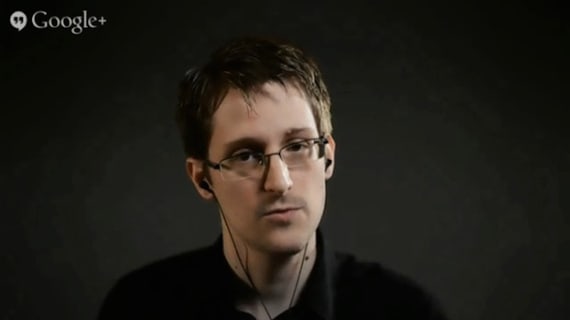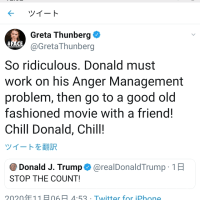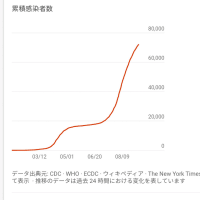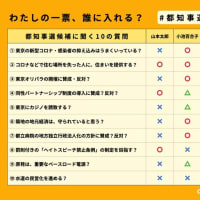
スノーデンの警告「Dropboxは捨てろ」「FacebookとGoogleには近づくな」 (転載)
投稿日: 2014年10月14日 13時19分 JST 更新: 2014年10月14日 13時30分 JST
エドワード・スノーデンによると、プライバシーを重視する人は、Dropbox、Facebook、Google等の人気サービスには近寄らない方がよいらしい。
スノーデンは今日(米国時間10/12)、New Yorker Festivalの中でリモートインタビューを受け、プライバシーを守るために、何がわれわれにできるかについていくつか質問に答えた。
最初の回答は、政府方針の改革についてだった。自分には「隠すものは何もない」という立場を取る人々に対して、それは「権利のしくみに関する責任の在り方を覆すことだ」と反論した。
「私には隠す物など何もない」と言うことは「この権利のことなど私にはどうでもよい」と言っているのと同じだ。つまりは「私はこの権利を持っていない、なぜならそれを正当化しなくてはならなくなったからだ」とあなたは言っている。本来、政府によるあなたの権利に対する侵害は、政府が正当化しなくてはならない。

さらに彼は、個人レベルでは暗号化ツールを活用し、「プライバシーの敵」であるサービスは使うのをやめるべきだと言った。例えばDropboxを避けるべき理由として、「暗号化をサポートしていない」ことを挙げ、SpiderOakのようなサービスを使うべきだと言った(スノーデンは以前にも、Dropboxがユーザー情報の保護は最優先であると回答したことに対して同様のコメントを述べた)。
[アップデート:Dropboxはスノーデンの発言に関連して、6月のブログ記事に「Dropboxで送受信されるファイルは、ユーザーとサーバーの間で暗号化」されており「サーバー上でも同様である」と書いている。DropboxとSpiderOakの違いは、ここにも説明されているように、SpiderOakは、ユーザーのコンピュータ上でもデータを暗号化している点だ。]
彼によると、FacebookやGoogleはセキュリティーを改善してはいるが、今でも使うのを避けるべき「危険なサービス」だという(彼がこう話すのを見ている人の画面には、必ずGoogle HangoutかYouTubeのロゴがスノーデンの顔の上に表示されていたわけだが)。この点に関する彼の最終的アドバイスはこうだ。暗号化されていないテキストを送るな、代わりにRedPhoneやSilent Circleのようなサービスを使え。
インタビューの中でスノーデンは、iOSが暗号化を強化したことが犯罪取り締りに支障を来たすとする主張を退けた。たとえ暗号化されていても、政府機関は対象者の電話機を全面調査する捜査令状を取ることが可能であり、電話機には暗号化データの解読キーが入っている。しかも、AppleやAT&T、Verizon等がデータの召喚を受ける可能性もある、と彼は言った。
プライバシー問題以外に、スノーデンはなぜ彼が政府の電子監視プログラムを暴露する文書をリークするに至ったかについても話した。
秘密のプログラムはあってもいい。取り調べを受けている個人全員の名前を米国民が知る必要がないことはわかるだろう。諜報機関のあらゆるプログラムに関して、われわれが技術的詳細を知る必要もない。しかし、政府がどんな力を持っているのか・・・そしてそれがどうわれわれに影響を与え、どう海外との関係に影響を与るのか、大まかな概要は知る必要がある。なぜなら、もし知らなければ、もはや我々は市民ではなく、もはや我々にリーダーはいないからだ。我々は国民であり、我々には指導者がいる。
なぜスノーデンは米国へ帰って法廷に立たないのかという理由について彼は、米国政府のThomas DrakeやChelsea Manningなどの内部告発者に対する扱いを見て、自分が開かれた法廷で陪審員によって裁かれることはないと確信したからだと言う。
「私は政府と交渉する中で、開かれた裁判、即ちDan Ellsbergと場合と同じように公正な裁判を行う用意があるなら喜んで応じると、再三再四政府に伝えた」と彼は言った。「しかし、未だに拒否され続けている」
スノーデンは、彼が中国やロシアという、それ自身人権やプライバシーに関して潔白とはいえない国々の保護を受けていることの矛盾は認めている。いわく、ロシアは彼が中南米へ行くための乗り継ぎ地のはずだった ― しかしパスポートは彼がモスクワ空港にいる間に取消された。
New YorkerのJane Mayerはインタビュー最後の雑談で、スノーデンにこれで自由にウォッカが飲めるだろうとほのめかした。彼はこう答えた。「実は私はアルコールを飲まない。殆ど知られていない事実だが、私は今までに酔ったことがない」
インタビューの全篇ビデオを下に貼った。プライバシーと消費者向けインターネットサービスに関する議論(2つの質問は続いている)は、58:30付近から始まる。
[原文へ ]
(翻訳:Nob Takahashi / facebook
Edward Snowden’s Privacy Tips: “Get Rid Of Dropbox,” Avoid Facebook And Google
Posted Oct 11, 2014 by Anthony Ha (@anthonyha)
According to Edward Snowden, people who care about their privacy should stay away from popular consumer Internet services like Dropbox, Facebook, and Google.
Snowden conducted a remote interview today as part of the New Yorker Festival, where he was asked a couple of variants on the question of what we can do to protect our privacy.
His first answer called for a reform of government policies. Some people take the position that they “don’t have anything to hide,” but he argued that when you say that, “You’re inverting the model of responsibility for how rights work”:
When you say, ‘I have nothing to hide,’ you’re saying, ‘I don’t care about this right.’ You’re saying, ‘I don’t have this right, because I’ve got to the point where I have to justify it.’ The way rights work is, the government has to justify its intrusion into your rights.
He added that on an individual level, people should seek out encrypted tools and stop using services that are “hostile to privacy.” For one thing, he said you should “get rid of Dropbox,” because it doesn’t support encryption, and you should consider alternatives like SpiderOak. (Snowden made similar comments over the summer, with Dropbox responding that protecting users’ information is “a top priority.”)
[Update: In a June blog post related to Snowden, Dropbox actually says, "All files sent and retrieved from Dropbox are encrypted while traveling between you and our servers," as well as when they're "at rest on our servers," and it points to other security measures that the company is taking. The difference between Dropbox and SpiderOak, as explained elsewhere, is that SpiderOak encrypts the data while it's on your computer, as opposed to only encrypting it "in transit" and on the company's servers.]
[And here's a more complete Snowden quote, from around 1:04:55 in the video: "We're talking about encryption. We're talking about dropping programs that are hostile to privacy. For example, Dropbox? Get rid of Dropbox, it doesn't support encryption, it doesn't protect your private files. And use competitors like SpiderOak, that do the same exact service but they protect the content of what you're sharing."]
He also suggested that while Facebook and Google have improved their security, they remain “dangerous services” that people should avoid. (Somewhat amusingly, anyone watching the interview via Google Hangout or YouTube saw a Google logo above Snowden’s face as he said this.) His final piece of advice on this front: Don’t send unencrypted text messages, but instead use services like RedPhone and Silent Circle.
Earlier in the interview, Snowden dismissed claims that increased encryption on iOS will hurt crime-fighting efforts. Even with that encryption, he said law enforcement officials can still ask for warrants that will give them complete access to a suspect’s phone, which will include the key to the encrypted data. Plus, companies like Apple, AT&T, and Verizon can be subpoenaed for their data.
Beyond the privacy discussion, Snowden talked about how and why he decided to leak documents bringing the government’s electronic surveillance programs to light. He repeatedly claimed that he wasn’t pursuing a specific policy outcome, but just trying to have an open conversation about these issues:
We can have secret programs. You know, the American people don’t have to know the name of every individual that’s under investigation. We don’t need to know the technical details of absolutely every program in the intelligence community. But we do have to know the bare and broad outlines of the powers our government is claiming … and how they affect us and how they affect our relationships overseas. Because if we don’t, we are no longer citizens, we no longer have leaders. We’re subjects, and we have rulers.
As for why Snowden hasn’t come back to the United States to stand trial, he said that when he looked at how the U.S. government treated whistleblowers like Thomas Drake and Chelsea Manning, he became convinced that he wouldn’t be able to present his case to a jury in an open trial.
“I’ve told the government again and again in negotiations, you know, that if they’re prepared to offer an open trial, a fair trial in the same way that Dan Ellsberg got, and I’m allowed to make my case to the jury, I would love to do so,” he said. “But to this point they’ve declined.”
Snowden acknowledged that there’s some irony in his taking shelter in China and Russia, countries that don’t exactly have spotless human rights or privacy records themselves. He said Russia was supposed to be a transit point on his way to Latin America — but his passport was canceled while he was at the Moscow airport.
The New Yorker’s Jane Mayer ended the interview on a light note, suggesting that Snowden was now free to enjoy some vodka. He replied, “I actually don’t drink alcohol. Little-known fact: I’ve never been drunk.”
Here’s a full video of the interview. The discussion of privacy and consumer Internet services (which, again, consisted of two questions in a row) begins at around 58:30.
(元記事)
http://www.huffingtonpost.jp/techcrunch-japan/snowden_b_5980606.html?&ncid=tweetlnkushpmg00000067
http://techcrunch.com/2014/10/11/edward-snowden-new-yorker-festival/





















